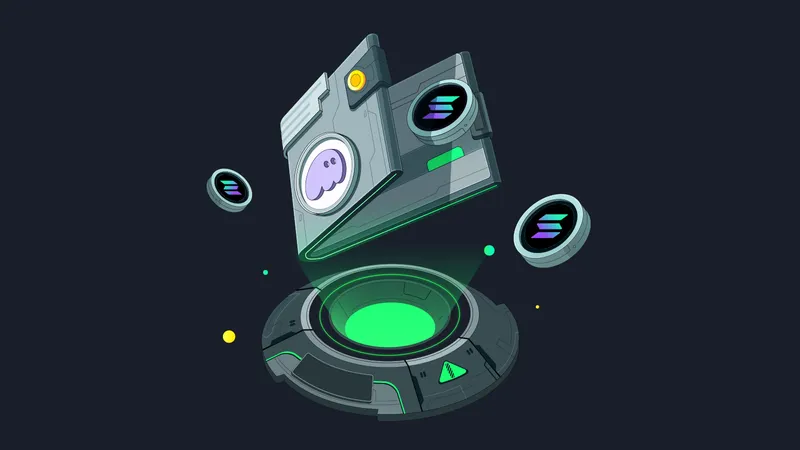Bridging tokens between different blockchain networks can seem daunting, but with the Phantom Wallet, the process is streamlined and user-friendly. This guide will walk you through the steps to bridge your tokens to the Solana network using Phantom Wallet’s Cross-Chain Swapper.
What Is Phantom Wallet?
Phantom is a user-friendly cryptocurrency wallet that enables individuals to manage their digital assets and interact with decentralized applications (dApps) within the Solana ecosystem. Since its launch in 2021, Phantom has prioritized making crypto accessible, intuitive, and secure for everyone. The wallet offers a seamless experience for users to store, send, receive, and stake Solana-based tokens, as well as collect and view non-fungible tokens (NFTs). Its intuitive interface and robust security features have contributed to its rapid adoption among both novice and experienced crypto enthusiasts. As of February 2025, Phantom has over 10 million monthly active users (MAUs) and has completed nearly 1 billion transactions.
In November 2023, Phantom introduced the Cross-Chain Swapper feature, significantly enhancing its functionality by supporting seamless token transfers across multiple blockchains, including Ethereum, Polygon, and Base. This integration allows users to bridge tokens across these networks directly within the Phantom wallet, eliminating the need for external exchanges or complex bridging processes. The Cross-Chain Swapper optimizes bridge routes for speed and cost, provides real-time updates on transaction status, and ensures a secure transfer experience through partnerships with trusted providers. This development aligns with Phantom's mission to simplify crypto interactions and accelerate the adoption of decentralized finance (DeFi) solutions.
Why Bridge Tokens to Solana?
Solana is known for its high-speed transactions and low fees, making it an attractive platform for DeFi activities, NFTs, and other blockchain applications. By bridging your tokens to Solana, you can take advantage of these benefits and explore the growing ecosystem of dApps available on the network.
Supported Blockchains for Bridging Tokens to Solana Using Phantom
Source: Phantom blog
Phantom Wallet's Cross-Chain Swapper enables seamless bridging of tokens to the Solana network from several prominent blockchains. The supported origination chains include:
-
Ethereum: As one of the most widely used blockchain platforms, Ethereum hosts a vast array of tokens that can be bridged to Solana.
-
Polygon: Known for its scalability solutions, Polygon allows for efficient token transfers to the Solana ecosystem.
-
Base: Developed to provide a secure and low-cost environment for decentralized applications, Base is also supported for bridging tokens to Solana.
This multi-chain support enhances the flexibility of asset management, allowing users to leverage Solana's high-speed, low-cost transactions by transferring assets from these networks directly within the Phantom Wallet interface.
How to Bridge Tokens to Solana with Phantom Wallet
Step 1: Install and Set Up Phantom Wallet
For Desktop Users
-
Visit the Phantom website and download the browser extension compatible with your browser (Chrome, Firefox, Brave, or Edge).
-
After installation, create a new wallet by following the on-screen instructions and securely store your recovery phrase.
For Mobile Users
-
Download the Phantom Wallet app from the App Store or Google Play Store.
-
Set up your wallet by following the prompts and securely back up your recovery phrase.
Here’s a straightforward guide on how to set up your Phantom wallet.
Step 2: Fund Your Phantom Wallet
Ensure your Phantom Wallet is funded with the tokens you wish to bridge, e.g., Ethereum (ETH). You can buy Ethereum on KuCoin and transfer your tokens to your Phantom wallet to fund it.
Step 3: Access the Cross-Chain Swapper
Open your Phantom Wallet and click on the Swap icon (🔁) located at the bottom of the interface.
Step 4: Select Origination Chain and Token
In the Swap tab, select the blockchain network where your tokens are currently held (e.g., Ethereum) and choose the specific token you want to bridge.
Step 5: Select Destination Chain and Token
Click on the field labeled "Select token" with a plus icon to choose your destination chain. Select Solana as the destination chain and choose the token you wish to receive on Solana (e.g., USDC).
Step 6: Enter the Amount and Review the Quote
Input the amount of the selected token you want to bridge. A quote will appear, displaying the estimated amount of tokens you will receive on the Solana network.
Review the details carefully, including any associated fees and the estimated transaction time.
Step 7: Initiate the Swap
Scroll down and confirm the transaction details. If everything looks correct, click on "Swap Now" to initiate the bridging process.
Step 8: Monitor the Transaction
After initiating the swap, you can monitor the status of your transaction in the Activity tab (⚡) within the Phantom Wallet.
Transactions may take a few minutes to complete, depending on network congestion and other factors.
Important Considerations
-
Fees: When using the Cross-Chain Swapper, you may incur transaction fees (paid in the native token of the origination chain), bridge provider fees (typically around 0.3% of the amount transferred), and a Phantom fee of 0.85%.
-
Supported Tokens: You can swap any token on the origination chain for USDC on the destination chain. Additionally, tokens like ETH, SOL, USDT, DAI, and over 30 others are supported for certain routes.
-
Transaction Times: Bridging transactions can take anywhere from a few minutes to up to an hour, depending on network conditions. Phantom provides an estimated transaction time and keeps you updated with real-time status in the Activity tab.
Conclusion
Bridging tokens to the Solana network using Phantom Wallet's Cross-Chain Swapper is a straightforward process that opens up a world of opportunities within the Solana ecosystem. By following the steps outlined above, you can seamlessly transfer your assets and take advantage of Solana's high-speed, low-cost transactions.
